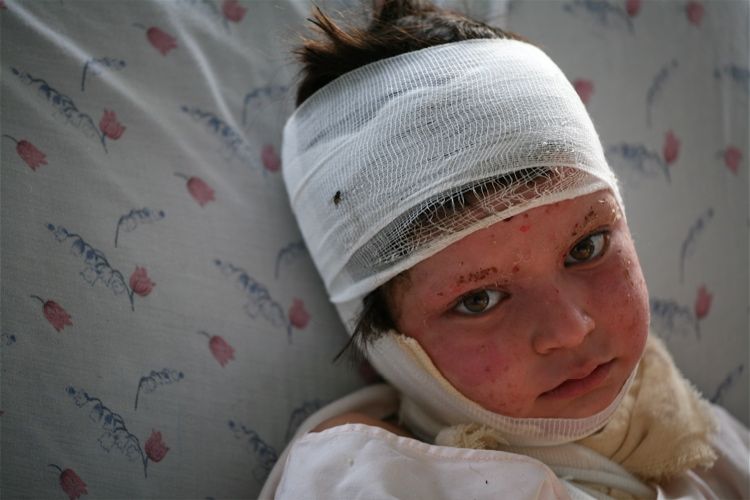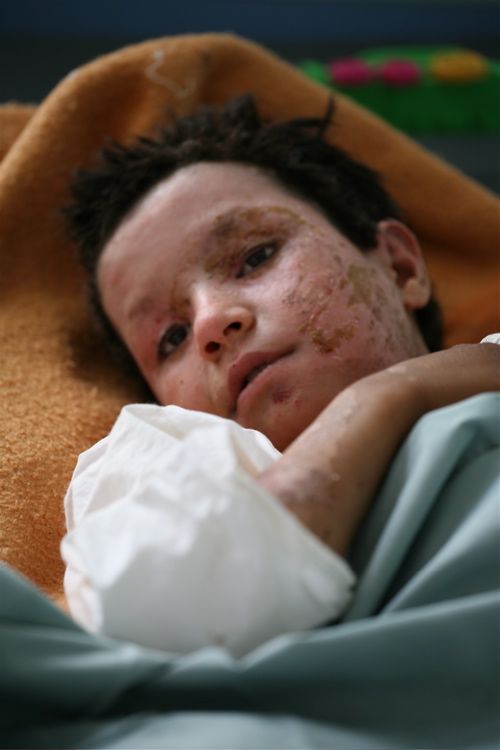Jason Motlagh, for the Pulitzer Center
I was told that a handful of survivors from the latest deadly US airstrike in western Afghanistan were recovering at Herat hospital's new burn ward, the best in the country.
The facility was built (with foreign support) to cope with a grim phenomenon of women in ultra-conservative western Afghanistan who were immolating themselves in larger numbers to escape abusive husbands, in-laws and forced marriages. When I reported on the issue two years ago, a dozen or so young women were healing -- and dying -- from severe burns in a filthy wing of the hospital.
The new ward was spotless. And better still, almost empty of women who had set themselves ablaze, emblematic of a decline in cases region-wide. But the bombing victims I was looking for filled the beds in one of the rooms.
Haji Sayed Barakat, 65, a farmer from Farah province's Bala Boluk district, scene of last Monday's attack, stood silently over his three daughters as they slept, covered in gauze wrappings and full of painkillers. Occasionally, one of the children whimpered in pain, "Momma, Momma" before drifting off again.
Mr. Barakat alternated between the beds, wielding a blue fly swatter to keep insects off their raw skin. They were all that was left of his family; his wife and two other children were killed.
They'd gone to visit in-laws for a small celebration that evening in Gerani, he said, one of three villages that was later bombarded. Had he gone along, he figured he too would be dead.
The ground started shaking at around 8 in the evening, he said, punctuated by flashes of light. When Mr. Barakat arrived on the scene past midnight, he dug hand over fist until he found his wife by her clothing and the bodies of his children nearby. Her face, he said, was smashed unrecognizable.
He estimates there were about 70 others pulled out from the surrounding rubble.
Sayed Malham, 45, found out by phone call that he'd lost two of his sons. He was in Kerman, Iran, working as a truck driver to support his family. Upon hearing the news, he raced back to the hospital in Herat to be with his surviving daughter, 9-year-old Nozou.
Wide-eyed, with a shock of black hair singed at the edges, she recalled the confusion of the moment. "It was war all around," she said.
The children were rushed by vehicle to Herat by the Red Cross to receive treatment. Both parents said they were grateful for the free help, though they did not know what was next in store for their families once they were discharged.
Farah is a dangerous place, they said, where threats came from all sides: the Taliban they despise, predatory Afghan police, and foreign forces who rained death from the sky.



